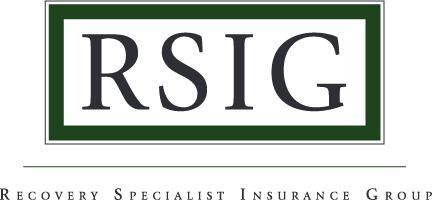As a provider of education and training and certification for the repossession industry, RSIG feels it is important to weigh in on the recent decision by Santander and all of the subsequent editorials and messages we have received regarding the issue.
In an industry that has always been divided and unfortunately appears that it always will be, we have not felt it appropriate or necessary to be even more divisive. That is why the RSIG University online certification program has always been open to any repossessor regardless of industry affiliation and to those with no industry affiliation at all. In our opinion any source of quality education for the industry is good for the industry. A trained and educated repossessor is generally an insurable repossessor and always having an insurance product available to the repossession industry is what we have specialized in for more than 30 years.
We do not believe that the industry’s response to the latest decree from Santander was necessarily meant to be a revolt or to say anything specifically against the CARS training program. Unfortunately it seems that it may have been taken that way. We are extremely familiar with the CARS program and with Joe’s offerings to the industry. In fact when you go back and look at the history of education and training for this industry, it is a little known (but verifiable and documented) fact that Ed Marcum, Jim Clark, Joe Taylor, Mark Lacek and John Kilpatrick initially worked together in 1998 on repossession industry training known as Professional Repossession Specialist Certification Program. That’s how far back training and education in this industry goes. It seemed at the time to be a great fit, Marcum and Clark were with Recovery Specialist Insurance Group offering insurance and education to the repossession industry. Taylor was closely connected in Florida to the State, being a Florida repossessor and one of many instructors approved to teach a Florida licensing course and Lacek and Kilpatrick were connected to the Florida state association, operating as repossessors in Florida and connected to the industry through the publication of Professional Repossessor Magazine.
The argument against Santander’s requirement is because it requires many agents to spend even more money just in an effort to be on an approved list to possibly receive Santander accounts. It is something else that repossessors must pay for without so much as a promise on the return on the investment. The argument is simply that Santander should accept other certification programs and not exclude all others except CARS.
In their rebuttal articles, Joe compares Old vs New; so we will put our oar into this water as well. RSIG has been providing education and training for this industry for almost 30 years. This education and training became known as certification when it became a buzz-word back in the early 2000s. RSIG’s training initially began as a 2 day classroom course with a monitored exam. As technology improved and the need to provide training more on-demand, RSIG moved its course to an online learning system and continued to add credibility to the program by being the first to require a proctored exam. This definitely ruffled the feathers of many repossessors who had become accustomed to testing in a group environment, having someone else take the exam for them or who were frustrated with not being able to have the text or notes in front them while taking the test. But while it is still not everyone’s preferred method of test taking, it seems that most understand why the measures were taken and the policies are in place to ensure that the learner has reviewed the material and is who they claim to be on test day.
In the rebuttal article, there are bullet points explaining why Joe believes Santander selected the CARS program, the RSIG University Certification Course (and perhaps others that we cannot speak directly about from experience) can promote the same bullet points:
Like the CARS program, the RSIG Certification Course has been vetted and tested by the industry almost 2 decades. With the exception of Santander, major lenders have reviewed the RSIG Certification course and repossessors who have their training through the RSIG course have the certification box checked ü on their agent profiles.
Like the CARS program, the RSIG Certification Course meets the requirements of Illinois licensure, in addition to the State of Louisiana, which also requires training including annual continuing education. (RSIG’s online certification course is not currently approved by Florida for licensing because (among various other excuses) the State said that we do not have a physical presence or classroom in the State; however the material provided within the Florida course meets all of Florida’s requirements and repossessors in the state still use the course as a training tool for their employees.)
Currently there is no reviewing body that approves or denies certification programs in all 50 states; as most states do not require licensing, there is no official program in place for reviewing or approving repossession agent certification.
Like the CARS program promotes, the RSIG Certification Course is reviewed and used by legal counsel who represent repossessors and their insurance companies through all forms of litigation.
Like the CARS program, the individuals behind the RSIG Certification Course are also called upon as a resource and expert witness in legal matters.
So it begs to be answered, if the RSIG Certification Course meets these same benchmarks, why shouldn’t Santander accept it? If any other training program can meet these benchmarks, why shouldn’t it be considered?
It seems that the initial point of the editorial regarding Santander’s CARS mandate has been lost. It is not a complaint by the industry that there should be no requirement for training and it should not be turned into a defensive argument or informercial touting one person over another; it is a cry for recognition that there are more than one option available for that training.
There also needs to be a separation at this point between what RISC offers the industry in terms of compliance monitoring and tracking and what CARS is. CARS is the certification program, it is the text and test for becoming certified; RISC is a monitoring program – separate services. As Joe’s article says CARS is owned by RISC – so RISC has a vested interest in getting lenders to require the CARS program and as RISC brings on more and more clients and forwarders to their compliance monitoring program, it stands to reason they will push the CARS certification as the only option. But as RISC was created to assist all who service repossession assignments, then it should also recognize there are other options and check the certification box for agents who are already taking the steps to educate and train their employees through other programs that clients have already been accepting.
Santander and all clients who require certification are limiting their options of quality repossessors when they exclude an entire group of trained professional recovery agents on the basis they have invested in a different training course.
With the support of the industry trade groups who initially expressed their concern about this requirement and the professional agencies who have taken a stand telling Santander they would not take on more expense, we will continue to reach out to Santander applauding their decision to require certification but to also provide them with the opportunity to see the value of the other options that are available to the industry in the free market environment.
Ed Marcum,
Recovery Specialist Insurance Group (RSIG)











